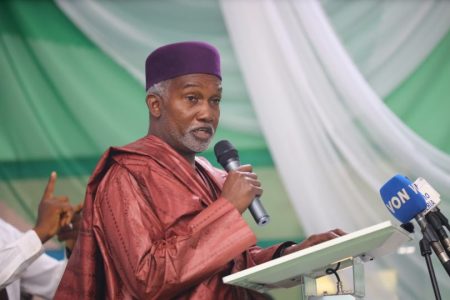Atiku Abubakar, former Vice President of Nigeria, has vehemently condemned the recent spate of deadly attacks across several Nigerian states, including Borno, Plateau, Kano, and Kebbi. These attacks, which have claimed the lives of over 50 people, represent a grim escalation of violence in a nation already grappling with significant security challenges. Atiku, expressing his profound sorrow and condolences to the families of the victims, emphasized that these tragedies are not mere statistics but represent the shattering of lives and the loss of human potential. He called for a decisive, people-centered approach to security, one that prioritizes the sanctity of human life above all other considerations.
Atiku’s condemnation goes beyond a simple expression of sympathy. He pointedly criticizes what he perceives as the silence and indifference of authorities in the face of this escalating violence. He specifically mentioned Benue State, which has also been plagued by attacks, as an example of the government’s seeming inaction. This perceived lack of response, he argues, contributes to the normalization of bloodshed, making it increasingly difficult for the nation to address the root causes of violence and hold those responsible accountable. Atiku’s critique implicitly challenges the government’s current security strategies, suggesting a need for a more proactive and effective approach.
Central to Atiku’s argument is the need for a shift in priorities. He urges leaders at all levels of government to prioritize the safety and well-being of their citizens above political considerations. This call for a people-centered approach to security implies a need for greater engagement with communities, improved intelligence gathering, and more effective deployment of security forces. Furthermore, it suggests a need for addressing the underlying socio-economic factors that contribute to violence, such as poverty, unemployment, and inequality. Atiku’s warning that history will judge harshly those who choose power over people serves as a stark reminder of the moral imperative of leadership and the responsibility to protect the citizens they serve.
The increasing frequency and severity of these attacks underscore the urgent need for a comprehensive and sustainable security strategy in Nigeria. The recurring nature of the violence points to a failure of existing approaches, highlighting the need for new thinking and a more proactive stance from the government. A successful security strategy must not only address the immediate threats but also tackle the root causes of insecurity, including the proliferation of small arms, the influence of extremist ideologies, and the underlying socio-economic conditions that contribute to unrest.
Atiku’s condemnation also raises questions about the effectiveness of current security measures. The ability of attackers to repeatedly strike in different parts of the country, often with impunity, suggests a need for enhanced intelligence gathering, better coordination among security agencies, and improved community engagement. The recurring pattern of attacks further highlights the need for a more preemptive approach, focusing on preventing violence rather than simply reacting to it. This requires a deeper understanding of the motivations and tactics of the attackers, as well as the social and economic contexts in which they operate.
Ultimately, the attacks condemned by Atiku highlight a complex and deeply concerning security crisis in Nigeria. Addressing this crisis requires a multi-faceted approach that encompasses not only enhanced security measures but also a renewed commitment to good governance, economic development, and social justice. Atiku’s call for a people-centered approach to security emphasizes the crucial role of leadership in protecting the lives and livelihoods of citizens, and his warning against prioritizing power over people serves as a potent reminder of the fundamental responsibilities of government. The future stability and prosperity of Nigeria depend on the ability of its leaders to respond effectively to this growing security challenge and prioritize the well-being of its people.














